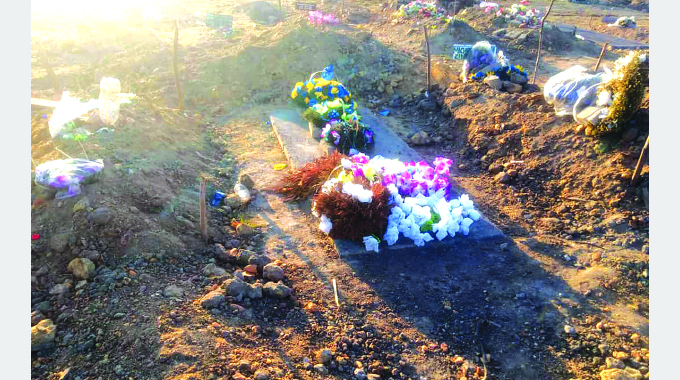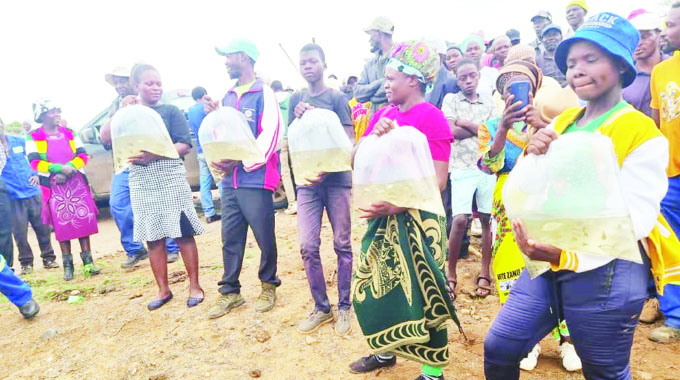Urgent action is needed to secure a sustainable future

Mia Seppo-UNDP Representative
For the first time since 1990 when the Human Development Index (HDI), a measure of well-being across health, education and economic domains, was first computed, 90 percent of measured countries have registered unprecedented reversals in human development.
The Covid-19 pandemic, recurrent natural disasters triggered by climatic shocks, conflict, increasing cost of living and widening inequalities have erased much of the human development progress made since 2015 when world leaders adopted the very ambitious 2030 Agenda for Sustainable Development.
The recently launched Human Development Report titled ‘Uncertain Times, Unsettled Lives: Shaping our Future in a Transforming World’ captures these challenges and calls for urgent action to reverse this worrisome trend.
While past societies have faced pandemics and wars, today’s challenges are aggravated by sweeping societal transformations on par with the industrial revolution, planetary change and widespread political polarisation.
These three factors are generating new and complex sources of uncertainty.
The Human Development Report notes that acute crises are giving way to chronic, layered, interacting uncertainties at a global scale painting a picture of uncertain times and unsettled lives.
The reversal in human development has been compounded by a rising sense of insecurity across the globe.
Presently, six out of seven people feel insecure and 35 percent of the world’s population, 10 percent higher than pre-Covid-19 era, are stressed.
With stress often comes mental health challenges. Children are particularly vulnerable with more than half of the world’s children having experienced emotional, physical or sexual violence, according to the report.
Uncertainty, inequality, and violence tend to go hand in hand with polarisation and lack of trust.
Trust in one another is at its lowest recorded level, coming in at just 30 percent, with those feeling insecure twice as likely to support extremist views.
Zimbabwe has not been spared by this malady of the new multi-layered challenges.
With a HDI score of 0.593, it is ranked 146 out of 191 countries, one place lower than its 2015 ranking.
Even before the pandemic struck, Zimbabwe’s economy was grappling with a compounded effect of increasing climatic variability and change, increased natural disasters such as Cyclone Idai followed by protracted drought during the 2019 -2020 agriculture season.
Despite these complex challenges, the report makes the case that solutions to these challenges are within reach, if only countries act proactively beginning today.
Through mobilising the entirety of its society and partnering with the African continent and the wider international community, Zimbabwe has the wherewithal to overcome the challenges and pursue its ambition of being an upper middle income country by 2030.
The 2022 Human Development Report calls on countries around the globe to formulate and implement policies that focus on the three I’s — Investments, Insurance, and Innovation.
First, ramping up investments in renewable energy such as hydroelectricity, wind and solar can improve access to electricity and create green, sustainable and robust jobs while investments in preparedness for pandemics and natural hazards can yield huge development dividends.
Second, increasing the depth and coverage of social protection can tackle the increasing sense of human insecurity.
As the socio-economic stimulus adopted during the peak of Covid-19 has taught us, cash transfers to the most vulnerable members of society can help them cope during the most difficult times.
Beyond social protection, increased attention to the provision of basic services and the promotion and protection of human rights, inclusive of economic, social and cultural rights, will contribute significantly to human security. Third, innovation is critical to the future well-being of society and to driving economic growth.
Innovation in all areas, be that technological, biological science or engineering, should be at the centre of efforts to conquer these complex and multi-layered challenges.
Already artificial intelligence is helping in modelling climate change impacts and predicting disasters and thus conditioning our response in very profound ways.
Harnessing the power of information technology towards positive development and fostering social cohesion in society will contribute to nation building.
Beyond technological innovation, working with civil society and other partners to ensure no one is left behind and harnessing the power of the private sector for development financing are equally important.
Much more could be done with increased investments in, and support for, innovation – while also addressing the asymmetry in innovation between the developed and developing world through technology and knowledge transfers.
We can unlock our human potential and begin to reimagine our future in a world that is fast changing. Rapidly changing demographic, societal, economic and technological trends are shaping our future.
People’s needs and demands are also evolving and as such, governments need to be more agile and innovative to keep pace with a changing world filled with uncertainty.
We can no longer use the old textbook to define our common path into a sustainable future.
The 2021-2022 Human Development Report sounds the alarm bell and calls for urgent action to usher in a new era.
It is time to fashion a roadmap that is inclusive of different ideas and solutions and respects the rights of all.
Let us roll up our sleeves for our common good on our shared planet with the urgency and commitment it deserves. UNDP, as a global thought leader which has time and again demonstrated that societal growth can only be measured through comprehensive human development, remains committed to work with the Government and the people of Zimbabwe to ensure a sustainable future for all.







Comments